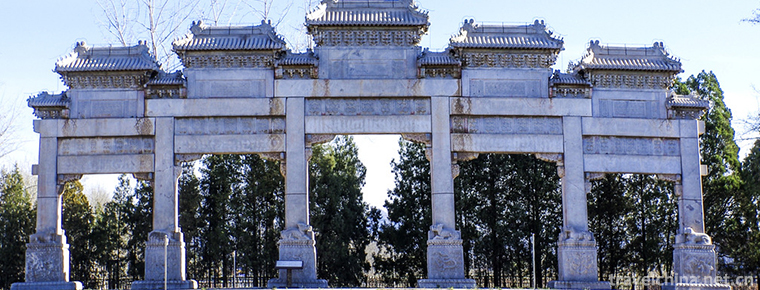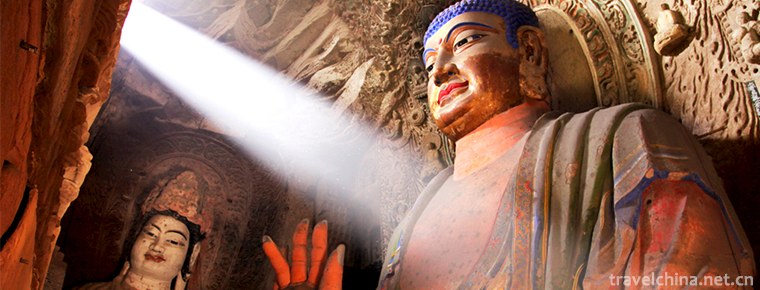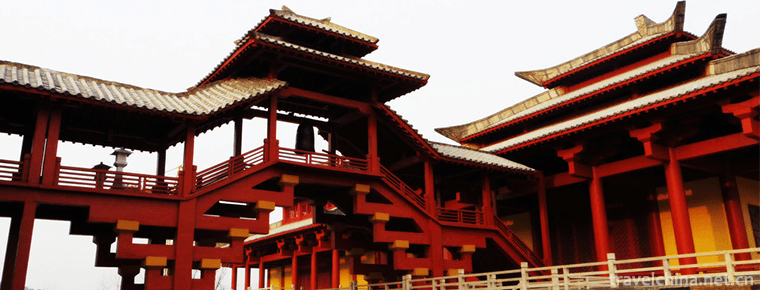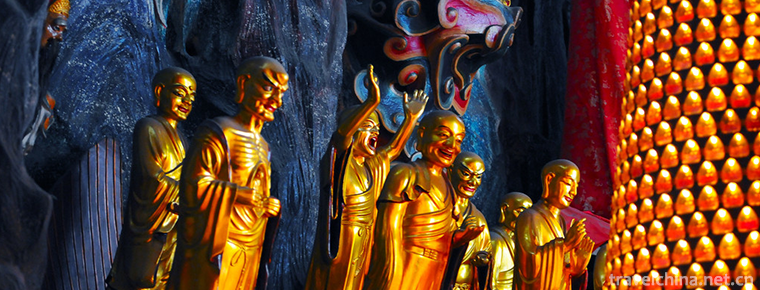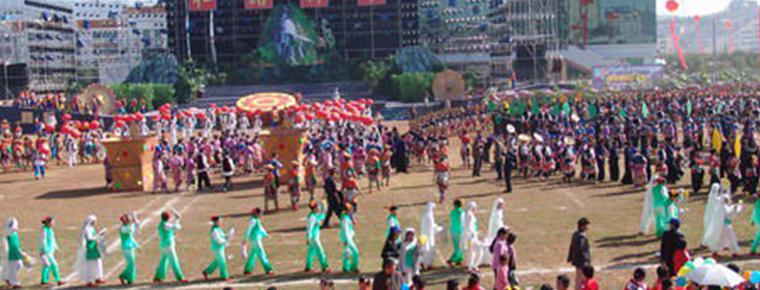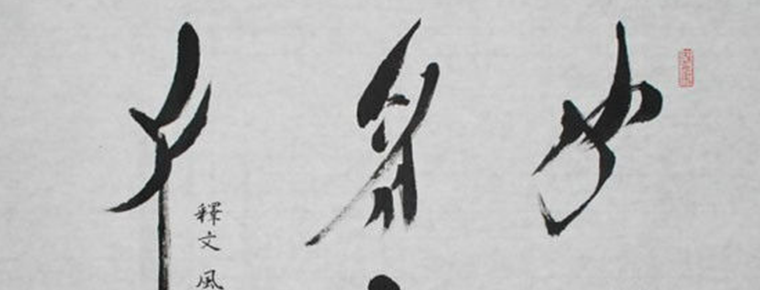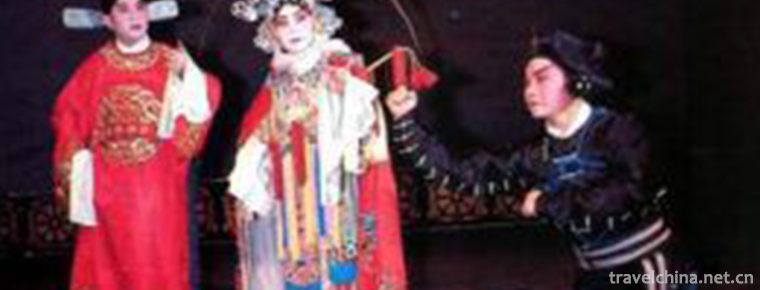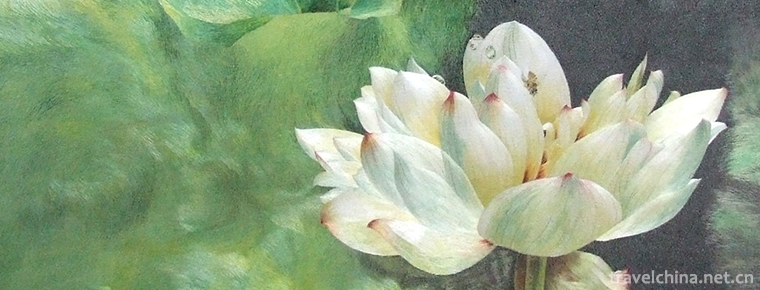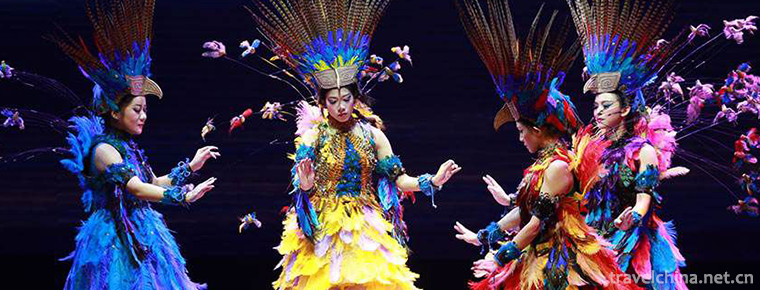Youyang Ancient Songs
Youyang Ancient Songs
Youyang Ancient Songs are the words chanted or chanted by sorcerers in the activities of ancestor worship, praying for high yield, exorcising evil spirits and returning vows. The Youyang Tujia and Miao Autonomous County of Chongqing, which is located at the junction of Hunan, Hubei, Chongqing and Guizhou, is the product of the continuation and evolution of the ancient culture of the South in the Wuling Mountains.
On May 23, 2011, Youyang Ancient Songs declared by Youyang Tujia and Miao Autonomous County of Chongqing City were approved by the State Council as the third batch of national intangible cultural heritage lists.
historical origin
Youyang Ancient Song (i.e. Wu Nuo Poetry) belongs to the category of witch culture. It is now mainly spread in Youyang Tujia and Miao Autonomous County of Chongqing, which is located at the junction of Hunan, Hubei, Chongqing and Guizhou. It is the product of the continuation and evolution of the ancient culture of the South in Wuling Mountains. It is also the legal activity of Tujia Wizard Nuo Master (Tima) - worship of ancestors, pray for plentiful production and exorcise evil spirits. The rhetoric recited or sung in the activities of vow-returning has a sophisticated style. It has a history of about 6,000 years. Its origin can be traced back to the witchcraft songs of ancient times. It is a collection of natural and social knowledge accumulated by the working people for a long time.
Words chanted or chanted by Nuo sorcerers in ancestor worship, praying for plentiful harvest and exorcising evil spirits are spread in Youyang Tujia and Miao Autonomous County. The origin of these words can be traced back to ancient times, and they are a collection of natural and social knowledge accumulated by the working people for a long time. Youyang Ancient Songs have two free verses and two verses and one verse, four verses and one verse rhyming metrical style, mostly four-character and seven-character sentence pattern, interspersed and connected, there are two kinds of arias, high and flat.
primary coverage
Words chanted or chanted by Nuo sorcerers in ancestor worship, praying for plentiful harvest and exorcising evil spirits are spread in Youyang Tujia and Miao Autonomous County. The origin of these words can be traced back to ancient times, and they are a collection of natural and social knowledge accumulated by the working people for a long time. Youyang Ancient Songs have two free verses and two verses and one verse, four verses and one verse rhyming metrical style, mostly four-character and seven-character sentence pattern, interspersed and connected, there are two kinds of arias, high and flat.
Youyang Ancient Songs have two free verses and two metrical verses at the end of one and four sentences, most of which are four-character and seven-character sentences, interlaced and connected. There are two kinds of singing, high-pitched and flat-pitched, quite charming. The chanting content depends on the nature of the ceremonies presided over. There are chapters such as divine dancing and inviting teachers, building bridges, inviting souls, hiding, shading, building family money first, making promises, sending Maoshan to God, etc. They are handed down orally, with fixed words and few improvisations. Youyang Ancient Songs can be divided into divine and living categories. Its representative works are: hymn "Qitian is the King of Qi in Dongyue", custom poem "Hiding in the Shadow", rhetoric poem "Four Seasons of the Year" and so on.
artistic characteristics
Thematic form
Judging from the style of Youyang Ancient Songs, there are two free verses and two metrical verses at the end of one and four sentences, most of which are four-character and seven-character sentences, interlaced and connected. There are two kinds of singing tunes: high-pitched and flat-pitched.
Content characteristics
1. The content is determined by the nature of the activity, and there are many chapters.
2. Fixed content and literary heritage;
3. It can be divided into divine and living categories.
4. The representative works include hymns, custom poems and final poems.
5. Including historical stories, there is also a breath of life.
6. Based on nature worship, ancestor worship and ghost worship.
7. Sacrifice verses of mixed Confucianism, Taoism and Buddhism.
The content of Youyang Ancient Song depends on the nature of the ceremony. It mainly consists of chapters such as divine jumping, inviting teachers, building bridges, inviting souls, hiding, falling clouds, building money first, making promises, sending Maoshan, sending gods, etc. It is handed down from mouth to mouth with fixed words. Youyang Wu Nuo poems are divided into divine and living categories. Its representative works are: hymn "Qitian in Dongyue is the King of Qi"; custom poems "Hide in the Shadow", "Ming Luo Huibing"; and rhetoric poems "Four Seasons of the Year". Including human origins, ethnic migration and heroic legends; and also breath of life, such as family activities of exorcising evil spirits and vows, including Shenwen Sheng, Yingbing bridge, water kitchen stove, hanging to dispel evil spirits, restoring God and restoring fragrance, sweeping and kicking knives and other procedural chapters. Wunuo poems are based on nature worship, ancestor worship and ghost and God worship, mixed with sacrificial verses of Confucianism, Taoism and Buddhism.
Literary Connotation
Witchcraft is rich in color (contact with Tima culture); 2) as the transmission of the soul of the deceased; 3) as a bridge for ordinary people to express their prayers.
Current situation of inheritance
Youyang Ancient Songs, carrying ancient myths, are the first-hand valuable materials for the study of the customs and customs of the Chinese nation and the development of literature and art. With the change of society and the innovation of popular ideas, the activities of folk rituals are gradually decreasing, and there are few Timas engaged in this profession. Youyang Ancient Songs are on the verge of extinction and need to be rescued and protected urgently.
The State Council has promulgated three national intangible cultural heritage protection catalogues, Youyang Hand-waving Dance, Youyang Folk Song and Youyang Ancient Song. All the pictures and videos are reported by the Cultural Museum to the county, city and State Council step by step to declare success, but the declared funds for each project are pitiful (20,000 yuan, making a standard). The filing videos are not enough. At present, we still owe 45,000 yuan for the filing materials of Youyang Ancient Songs, which needs to be solved by the county government. Chongqing has 39 national intangible cultural heritage protection lists, ranking second in 40 districts and counties.
Inheritance Significance
Youyang Ancient Songs have been handed down from mouth to mouth, with fixed diction and less improvisation. They preserve a large number of original information and artistic factors. They are an ancient and magnificent treasure house of folk literature. As the third batch of "non-heritage" at the national level, it will be protected and play a role in promoting the spread of regional culture and traditional culture.
On May 18, 2010, the Ministry of Culture of China announced the third batch of national intangible cultural heritage list of recommended projects (new entries). The "Youyang Ancient Songs" declared by Youyang Tujia and Miao Autonomous County of Chongqing City were selected as intangible cultural heritage in the category of folk literature projects.
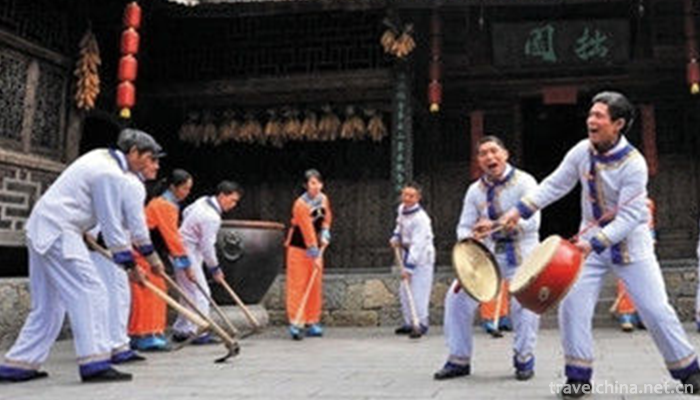
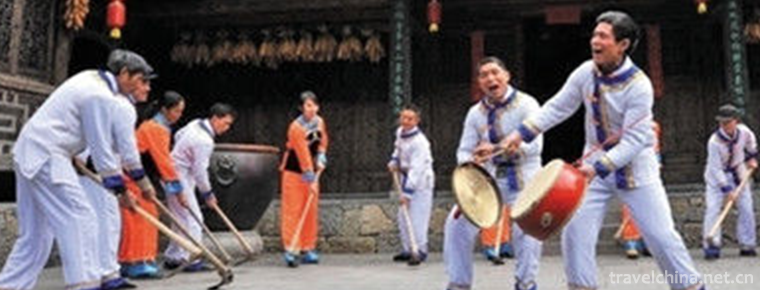
Youyang Ancient Songs
-
Ming Ming Dynasty Tombs Scenic Area
Ming Tombs, World Cultural Heritage, National Key Cultural Relics Protection Units, National Key Scenic Spots, National AAAAA Tourist Scenic Spots.
Views: 216 Time 2018-11-24 -
Binxian Dafo Temple Grottoes
Binxian Dafo Temple Grottoes, located at the foot of Qingliang Mountain, 10 kilometers west of Binxian City, Xianyang City, Shaanxi Province, is the largest Grottoes group in Shaanxi Province and an i
Views: 147 Time 2019-01-03 -
Hengdian Film and Television City Scenic Area
Hengdian Film and Television City is a large-scale comprehensive tourist area which integrates film and television, tourism, vacation, leisure and sightseeing. It has been rated as the national AAAAA-
Views: 186 Time 2019-01-13 -
Zhenjiang Jinshan Temple
Jinshan Temple was built in Jinshan Mountain on the South Bank of the Yangtze River in Zhenjiang City, Jiangsu Province, at the time of Emperor Ming of the Eastern Jin Dynasty
Views: 261 Time 2019-03-18 -
Dai nationality Zhang ha
Dai Zhangha, also known as "Zanha", is a traditional form of Dai folk song, which is spread in Xishuangbanna Dai Autonomous Prefecture in the southern border of Yunnan Province and Dai villa
Views: 138 Time 2019-04-24 -
Female Book Custom
Jiangyong Nu Shu in Yongzhou, Hunan Province, is the only special written language for women in the world. Its development, inheritance and cultural information as symbols constitute the custom of wom
Views: 133 Time 2019-06-08 -
Qiyang minor
Qiyang in the north of Yongzhou is a kind of traditional opera widely spread. After a long period of evolution and development, it has formed a traditional folk art form with strong local color,
Views: 150 Time 2019-06-10 -
Hunan embroidery
Hunan embroidery is one of the four famous embroidery in China. It is the general name of Hunan embroidery products with distinctive Hunan-Chu cultural characteristics centered in Changsha, Hunan Prov
Views: 323 Time 2019-07-06 -
Zhuang Drama
Zhuang Opera, a local traditional drama in Guangxi Zhuang Autonomous Region, is one of the national intangible cultural heritage.
Views: 185 Time 2019-08-16 -
Kangding yak meat
There are many wild medicines such as Fritillaria, Cordyceps and so on growing in these areas over 3500 meters. Yaks often eat these herbs, and their meat is incomparably delicious. After being killed, they can be roasted in brown sauce, stewed or dried in the cold
Views: 212 Time 2020-12-06 -
Tourist guide to Chengdu Giant Panda Base
Chengdu Giant Panda Breeding Research Base is located in Futou mountain, north suburb of Chengdu City, Sichuan Province. It is 10 kilometers away from the urban area. There is a wide panda Avenue connecting with the urban area.
Views: 332 Time 2020-12-13 -
Dazhou peoples life
In 2018, the per capita disposable income of Dazhou residents was 20881 yuan. The per capita disposable income of urban residents was 30882 yuan, an increase of 8.8%. Among them, salary income was 17597 yuan, an increase of 7.3%; net ope
Views: 169 Time 2020-12-20
